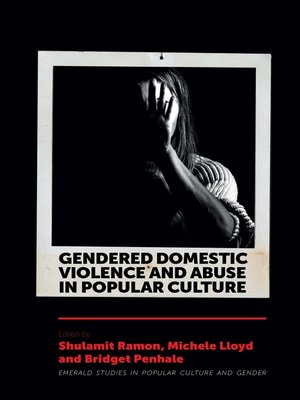Gendered Domestic Violence and Abuse in Popular Culture
ebook ∣ Emerald Studies in Popular Culture and Gender
By Shulamit Ramon

Sign up to save your library
With an OverDrive account, you can save your favorite libraries for at-a-glance information about availability. Find out more about OverDrive accounts.
Find this title in Libby, the library reading app by OverDrive.



Search for a digital library with this title
Title found at these libraries:
| Library Name | Distance |
|---|---|
| Loading... |
As binge-watching and streaming lead to increasing amounts of content and screen time, understanding how domestic violence and abuse is portrayed in popular culture and its impact on DVA in our society is more important than ever. Amid current international attention on sexual harassment, abuse and exploitation initiated by the #MeToo movement, this collection demonstrates how networked communication is influencing activism, both online and in the real-world.
The term gendered DVA recognises the wider gender inequality underpinning DVA, and intersecting inequalities such as race, social class, sexuality, age and disability. International contributors from Europe, the USA and Australia examine how DVA is represented in different media forms comprising film, television, newspapers, digital and social media, and TED lectures. The collection examines intimate partner abuse, child abuse, grooming and sexual exploitation, elder abuse and neglect, and abuse in LGBT relationships. Authors also analyse policy changes in relation to DVA, both progressive and regressive, together with topics such as moral panic in the media and trial by media.
An in-depth and wide-ranging resource, this collection will be a valuable text for health and social care professionals, researchers, academics, undergraduate and postgraduate students, and people with lived experience of DVA.
The term gendered DVA recognises the wider gender inequality underpinning DVA, and intersecting inequalities such as race, social class, sexuality, age and disability. International contributors from Europe, the USA and Australia examine how DVA is represented in different media forms comprising film, television, newspapers, digital and social media, and TED lectures. The collection examines intimate partner abuse, child abuse, grooming and sexual exploitation, elder abuse and neglect, and abuse in LGBT relationships. Authors also analyse policy changes in relation to DVA, both progressive and regressive, together with topics such as moral panic in the media and trial by media.
An in-depth and wide-ranging resource, this collection will be a valuable text for health and social care professionals, researchers, academics, undergraduate and postgraduate students, and people with lived experience of DVA.







